- Home
- Blake Crouch
Thicker Than Blood - the Complete Andrew Z. Thomas Series
Thicker Than Blood - the Complete Andrew Z. Thomas Series Read online
THICKER
THAN BLOOD
THE ANDREW Z. THOMAS TRILOGY
Desert Places
Locked Doors
Break You
By
Blake Crouch
CONTENTS
Introduction
Foreword to Desert Places by Jack Kilborn
Desert Places
Part I
Part II
Part III
Part IV
Epilogue
Foreword to Locked Doors by Blake Crouch
Locked Doors
Part I - Luther
Part II - Violet
Part III - Ocracoke
Part IV - Portsmouth
Part V - Sweet-Sweet & Beautiful
Part VI - Kinnakeet
Epilogue
Foreword to Break You by J.A. Konrath
Break You
Afterword
Bonus Features
Interview with Blake Crouch
Ginsu Tony: The Short Story That Became Desert Places
Desert Places Alternate Ending
Locked Doors Alternate Ending
Excerpt from Serial Killers Uncut
About Blake
Other Works by Blake
Coming Soon
Copyright
INTRODUCTION
Thicker Than Blood is the definitive volume of the Andrew Z. Thomas Trilogy, containing Desert Places, Locked Doors, Break You, and a host of bonus material never before released, including massive alternate endings to both Desert Places and Locked Doors.
Andrew Z. Thomas is the character that made my writing career—a horror novelist thrown into a nightmare world more terrifying than the books he wrote. His moral journey, from a novelist who writes horror fiction to someone who must finally question whether the words they write are actually a deeper reflection of the soul within, has been a wild ride, and I've loved every second of it—from the moment I started Desert Places in the summer of 1999, up until last month when I completed the double novel, Serial Killers Uncut, with J.A. Konrath, featuring many of the characters contained within these pages.
If you've never read my work before, this is a great place to start. If you've read any of my other books, you may have an idea of what you're in for—a blistering thrill-ride into hell.
Thanks for coming along...now hold on tight.
Blake Crouch
May, 2011
Durango, Colorado
FOREWORD TO DESERT PLACES
I first became aware of Blake Crouch in 2005, when a friend of mine said, "You should read him. He writes wicked stuff like you do."
So I read Desert Places, and realized my friend was sugar-coating it.
Wicked? Crouch was one of the most intense, no-holds-barred, in-your-face writers I had ever come across. Desert Places was an adrenaline-fueled nightmare, which moved so fast I had to hold onto the book with both hands.
But underneath all that intensity beat the heart of a damn fine writer. Someone who could turn a phrase, slip in some subtext, make the reader really care.
Desert Places will give you nightmares. But it will also move you in ways you didn’t expect.
How much do I admire his work? After I became a fan, I sought Blake out and we’ve worked together on several projects, with more planned for the future.
If this is the first time you’ve read Desert Places, I envy you. You’re in for one helluva ride.
Jack Kilborn, author of Trapped, Afraid, and Endurance
DESERT PLACES
* * *
"Greetings. There is a body buried on your property, covered in your blood. The unfortunate young lady's name is Rita Jones. In her jeans pocket you'll find a slip of paper with a phone number on it. Call that number. If I have not heard from you by 8:00 p.m., the police will receive an anonymous call. I'll tell them where Rita Jones is buried on your property, how you killed her, and where the murder weapon can be found in your house. (I do believe a paring knife is missing from your kitchen.) I strongly advise against going to the police, as I am always watching you."
Andrew Z. Thomas is a successful writer of suspense thrillers, living the dream at his lake house in the piedmont of North Carolina. One afternoon in late spring, he receives a bizarre letter that eventually threatens his career, his sanity, and the lives of everyone he loves. A murderer is designing his future, and for the life of him, Andrew can't get away.
They cannot scare me with their empty spaces
Between stars — on stars where no human race is
I have it in me so much nearer home
To scare myself with my own desert places.
— ROBERT FROST, "DESERT PLACES"
I
1
ON a lovely May evening, I sat on my deck, watching the sun descend upon Lake Norman. So far, it had been a perfect day. I’d risen at 5:00 A.M. as I always do, put on a pot of French roast, and prepared my usual breakfast of scrambled eggs and a bowl of fresh pineapple. By six o’clock, I was writing, and I didn’t stop until noon. I fried two white crappies I’d caught the night before, and the moment I sat down for lunch, my agent called. Cynthia fields my messages when I’m close to finishing a book, and she had several for me, the only one of real importance being that the movie deal for my latest novel, Blue Murder, had closed. It was good news of course, but two other movies had been made from my books, so I was used to it by now.
I worked in my study for the remainder of the afternoon and quit at 6:30. My final edits of the new as yet untitled manuscript would be finished tomorrow. I was tired, but my new thriller, The Scorcher, would be on bookshelves within the week. I savored the exhaustion that followed a full day of work. My hands sore from typing, eyes dry and strained, I shut down the computer and rolled back from the desk in my swivel chair.
I went outside and walked up the long gravel drive toward the mailbox. It was the first time I’d been out all day, and the sharp sunlight burned my eyes as it squeezed through the tall rows of loblollies that bordered both sides of the drive. It was so quiet here. Fifteen miles south, Charlotte was still gridlocked in rush-hour traffic, and I was grateful not to be a part of that madness. As the tiny rocks crunched beneath my feet, I pictured my best friend, Walter Lancing, fuming in his Cadillac. He’d be cursing the drone of horns and the profusion of taillights as he inched away from his suite in uptown Charlotte, leaving the quarterly nature magazine Hiker to return home to his wife and children. Not me, I thought, the solitary one.
For once, my mailbox wasn’t overflowing. Two envelopes lay inside, one a bill, the other blank except for my address typed on the outside. Fan mail.
Back inside, I mixed myself a Jack Daniel’s and Sun-Drop and took my mail and a book on criminal pathology out onto the deck. Settling into a rocking chair, I set everything but my drink on a small glass table and gazed down to the water. My backyard is narrow, and the woods flourish a quarter mile on either side, keeping my home of ten years in isolation from my closest neighbors. Spring had not come this year until mid-April, so the last of the pink and white dogwood blossoms still specked the variably green interior of the surrounding forest. Bright grass ran down to a weathered gray pier at the water’s edge, where an ancient weeping willow sagged over the bank, the tips of its branches dabbling in the surface of the water.
The lake is more than a mile wide where it touches my property, making houses on the opposite shore visible only in winter, when the blanket of leaves has been stripped from the trees. So now, in the thick of spring, branches thriving with baby greens and yellows, the lake was mine alone, and I felt like the onl
y living soul for miles around.
I put my glass down half-empty and opened the first envelope. As expected, I found a bill from the phone company, and I scrutinized the lengthy list of calls. When I’d finished, I set it down and lifted the lighter envelope. There was no stamp, which I thought strange, and upon slicing it open, I extracted a single piece of white paper and unfolded it. In the center of the page, one paragraph had been typed in black ink:
Greetings. There is a body buried on your property, covered in your blood. The unfortunate young lady’s name is Rita Jones. You’ve seen this missing school-teacher’s face on the news, I’m sure. In her jeans pocket you’ll find a slip of paper with a phone number on it. You have one day to call that number. If I have not heard from you by 8:00 P.M. tomorrow (5/17), the Charlotte Police Department will receive an anonymous phone call. I’ll tell them where Rita Jones is buried on Andrew Thomas’s lakefront property, how he killed her, and where the murder weapon can be found in his house. (I do believe a paring knife is missing from your kitchen.) I hope for your sake I don’t have to make that call. I’ve placed a property marker on the grave site. Just walk along the shoreline toward the southern boundary of your property and you’ll find it. I strongly advise against going to the police, as I am always watching you.
A smile edged across my lips. I even chuckled to myself. Because my novels treat crime and violence, my fans often have a demented sense of humor. I’ve received death threats, graphic artwork, even notes from people claiming to have murdered in the same fashion as the serial killers in my books. But I’ll save this, I thought. I couldn’t remember one so original.
I read it again, but a premonitory twinge struck me the second time, particularly because the author had some knowledge regarding the layout of my property. And a paring knife was, in fact, missing from my cutlery block. Carefully refolding the letter, I slipped it into the pocket of my khakis and walked down the steps toward the lake.
As the sun cascaded through the hazy sky, beams of light drained like spilled paint across the western horizon. Looking at the lacquered lake suffused with deep orange, garnet, and magenta, I stood by the shore for several moments, watching two sunsets collide.
Against my better judgment, I followed the shoreline south and was soon tramping through a noisy bed of leaves. I’d gone an eighth of a mile when I stopped. At my feet, amid a coppice of pink flowering mountain laurel, I saw a miniature red flag attached to a strip of rusted metal thrust into the ground. The flag fluttered in a breeze that curled off the water. This has to be a joke, I thought, and if so, it’s a damn good one.
As I brushed away the dead leaves that surrounded the marker, my heart began to pound. The dirt beneath the flag was packed, not crumbly like undisturbed soil. I even saw half a footprint when I’d swept all the leaves away.
I ran back to the house and returned with a shovel. Because the soil had previously been unearthed, I dug easily through the first foot and a half, directly below where the marker had been placed. At two feet, the head of the shovel stabbed into something soft. My heart stopped. Throwing the shovel aside, I dropped to my hands and knees and clawed through the dirt. A rotten stench enveloped me, and as the hole deepened, the smell grew more pungent.
My fingers touched flesh. I drew my hand back in horror and scrambled away from the hole. Rising to my feet, I stared down at a coffee brown ankle, barely showing through the dirt. The odor of rot overwhelmed me, so I breathed only through my mouth as I took up the shovel again.
When the corpse was completely exposed, and I saw what a month of putrefaction could do to a human face, I vomited into the leaves. I kept thinking that I should have the stomach for this because I write about it. Researching the grisly handiwork of serial killers, I’d studied countless mutilated cadavers. But I had never smelled a human being decomposing in the ground, or seen how insects teem in the moist cavities.
I composed myself, held my hand over my mouth and nose, and peered again into the hole. The face was unrecognizable, but the body was undoubtedly that of a short black female, thick in the legs, plump through the torso. She wore a formerly white shirt, now marred with blood and dirt, the fabric rent over much of the chest, primarily in the vicinity of her heart. Jean shorts covered her legs down to the knees. I got back down on all fours, held my breath, and reached for one of her pockets. Her legs were mushy and turgid, and I had great difficulty forcing my hand into the tight jeans. Finding nothing in the first pocket, I stepped across the hole and tried the other. Sticking my hand inside it, I withdrew a slip of paper from a fortune cookie and fell back into the leaves, gasping for clean lungfuls of air. On one side, I saw the phone number; on the other: "YOU ARE THE ONLY FLOWER OF MEDITATION IN THE WILDERNESS."
In five minutes, I’d reburied the body and the marker. I took a small chunk of granite from the shore and placed it on the thicketed grave site. Then I returned to the house. It was quarter to eight, and there was hardly any light left in the sky.
Two hours later, sitting on the sofa in my living room, I dialed the number on the slip of paper. Every door to the house was locked, most of the lights turned on, and in my lap, a cold satin stainless .357 revolver.
I had not called the police for a very good reason. The claim that it was my blood on the woman was probably a lie, but the paring knife had been missing from my kitchen for weeks. Also, with the Charlotte Police Department’s search for Rita Jones dominating local news headlines, her body on my property, murdered with my knife, possibly with my fingerprints on it, would be more than sufficient evidence to indict me. I’d researched enough murder trials to know that.
As the phone rang, I stared up at the vaulted ceiling of my living room, glanced at the black baby grand piano I’d never learned to play, the marble fireplace, the odd artwork that adorned the walls. A woman named Karen, whom I’d dated for nearly two years, had convinced me to buy half a dozen pieces of art from a recently deceased minimalist from New York, a man who signed his work "Loman." I hadn’t initially taken to Loman, but Karen had promised me I’d eventually "get" him. Now, $27,000 and one fiancée lighter, I stared at the ten-by-twelve-foot abomination that hung above the mantel: shit brown on canvas, with a basketball-size yellow sphere in the upper right-hand corner. Aside from Brown No. 2, four similar marvels of artistic genius pockmarked other walls of my home, but these I could suffer. Mounted on the wall at the foot of the staircase, it was Playtime, the twelve-thousand-dollar glass-encased heap of stuffed animals, sewn together in an orgiastic conglomeration, which reddened my face even now. But I smiled, and the knot that had been absent since late winter shot a needle of pain through my gut. My Karen ulcer. You’re still there. Still hurting me. At least it’s you.
The second ring.
I peered up the staircase that ascended to the exposed second-floor hallway, and closing my eyes, I recalled the party I’d thrown just a week ago — guests laughing, talking politics and books, filling up my silence. I saw a man and a woman upstairs, elbows resting against the oak banister, overlooking the living room, the wet bar, and the kitchen. Holding their wineglasses, they waved down to me, smiling at their host.
The third ring.
My eyes fell on a photograph of my mother — a five-by-seven in a stained-glass frame, sitting atop the obsidian piano. She was the only family member with whom I maintained regular contact. Though I had relatives in the Pacific Northwest, Florida, and a handful in the Carolinas, I saw them rarely — at reunions, weddings, or funerals that my mother shamed me into attending with her. But with my father having passed away and a brother I hadn’t seen in thirteen years, family meant little to me. My friends sustained me, and contrary to popular belief, I didn’t have the true reclusive spirit imputed to me. I did need them.
In the photograph, my mother is squatting down at my father’s grave, pruning a tuft of carmine canna lilies in the shadow of the headstone. But you can only see her strong, kind face among the blossoms, intent on tidying up her husband’s plot of e
arth under that magnolia he’d taught me to climb, the blur of its waxy green leaves behind her.
The fourth ring.
"Did you see the body?"
It sounded as if the man were speaking through a towel. There was no emotion or hesitation in his staccato voice.
"Yes."
"I gutted her with your paring knife and hid the knife in your house. It has your fingerprints all over it." He cleared his throat. "Four months ago, you had blood work done by Dr. Xu. They misplaced a vial. You remember having to go back and give more?"

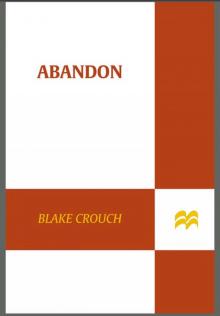 Abandon
Abandon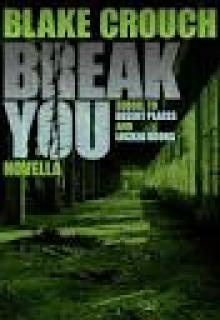 Break You
Break You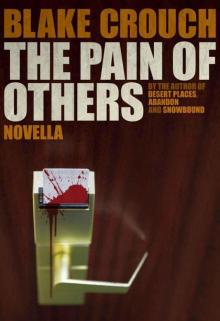 The Pain of Others
The Pain of Others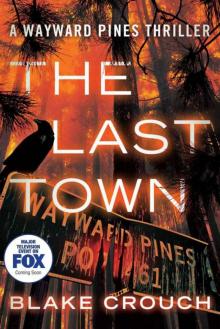 The Last Town
The Last Town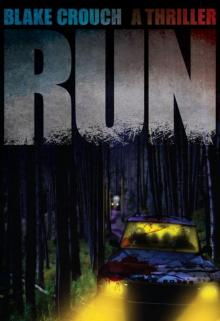 Run
Run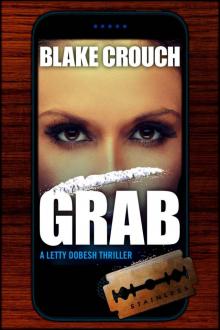 Grab
Grab Four Live Rounds
Four Live Rounds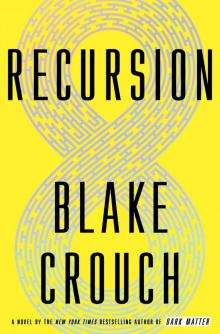 Recursion
Recursion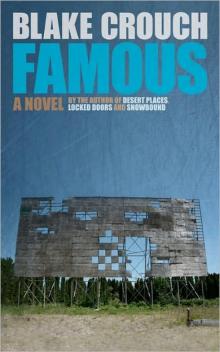 LUMINOUS BLUE: A Novel of Warped Celebrity
LUMINOUS BLUE: A Novel of Warped Celebrity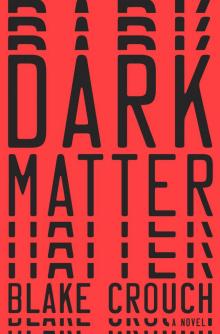 Dark Matter
Dark Matter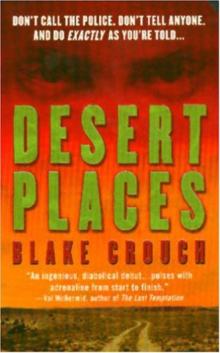 Desert Places
Desert Places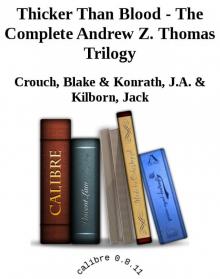 Thicker Than Blood - the Complete Andrew Z. Thomas Series
Thicker Than Blood - the Complete Andrew Z. Thomas Series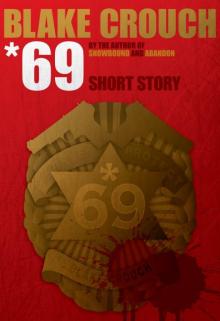 *69
*69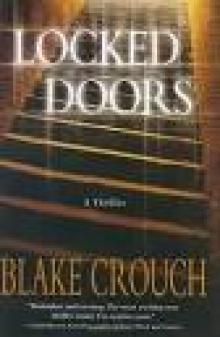 Locked Doors
Locked Doors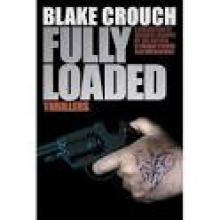 Fully Loaded Thrillers
Fully Loaded Thrillers![Summer Frost [Forward Collection] Read online](http://i1.bookreadfree.com/02/summer_frost_forward_collection_preview.jpg) Summer Frost [Forward Collection]
Summer Frost [Forward Collection]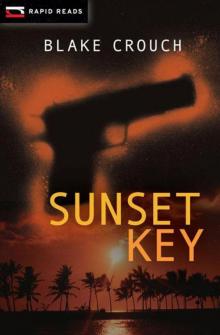 Sunset Key
Sunset Key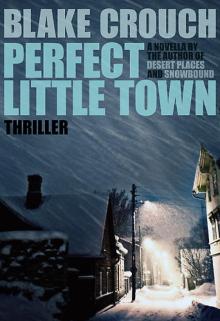 Perfect Little Town
Perfect Little Town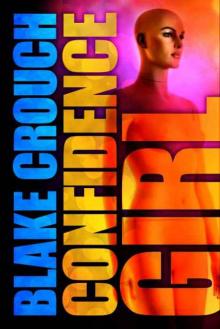 Confidence Girl
Confidence Girl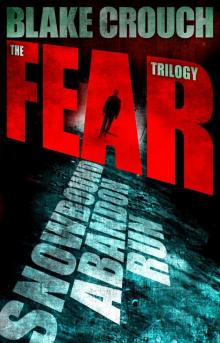 The Fear Trilogy
The Fear Trilogy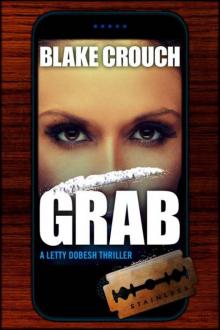 Grab ldm-3
Grab ldm-3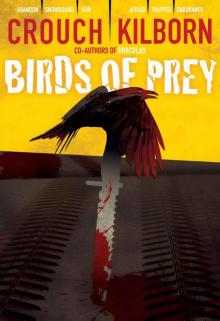 BIRDS OF PREY - A Psycho Thriller
BIRDS OF PREY - A Psycho Thriller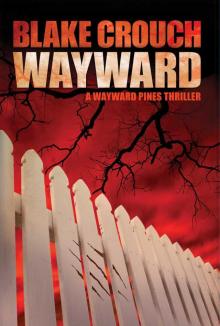 Wayward (The Wayward Pines Series, Book Two)
Wayward (The Wayward Pines Series, Book Two) Hunting Season: A Love Story
Hunting Season: A Love Story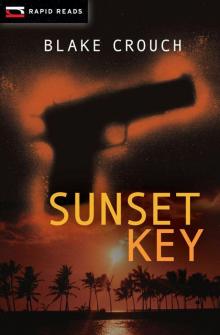 Sunset Key (Rapid Reads)
Sunset Key (Rapid Reads)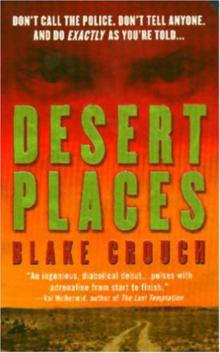 Desert Places: a Novel of Terror
Desert Places: a Novel of Terror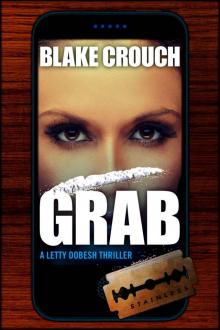 Grab (Letty Dobesh #3)
Grab (Letty Dobesh #3)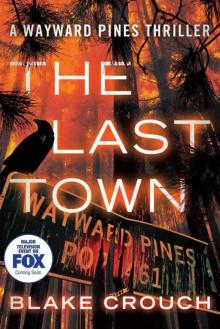 The Last Town (The Wayward Pines Trilogy 3)
The Last Town (The Wayward Pines Trilogy 3)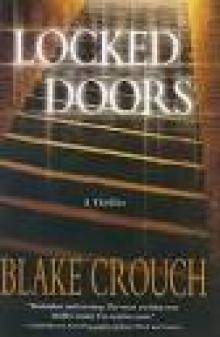 LOCKED DOORS: A Novel of Terror (Andrew Z. Thomas Thriller)
LOCKED DOORS: A Novel of Terror (Andrew Z. Thomas Thriller) BREAK YOU: A Novella of Terror (Prequel to Stirred) (Andrew Z. Thomas/Luther Kite)
BREAK YOU: A Novella of Terror (Prequel to Stirred) (Andrew Z. Thomas/Luther Kite)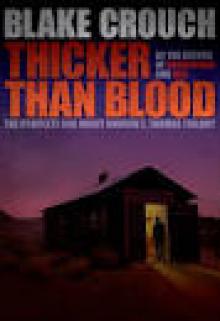 Thicker Than Blood - The Complete Andrew Z. Thomas Trilogy
Thicker Than Blood - The Complete Andrew Z. Thomas Trilogy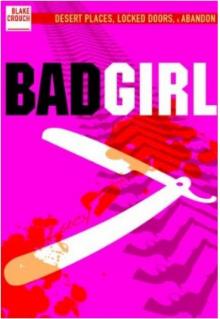 Bad Girl
Bad Girl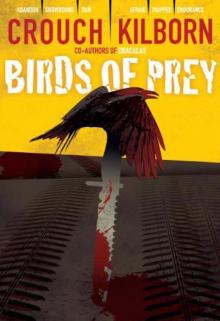 Birds of Prey
Birds of Prey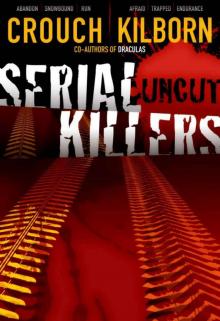 SERIAL KILLERS UNCUT - The Complete Psycho Thriller (The Complete Epic)
SERIAL KILLERS UNCUT - The Complete Psycho Thriller (The Complete Epic)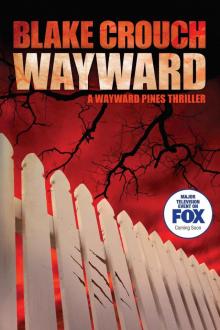 Wayward (The Wayward Pines Trilogy, Book 2)
Wayward (The Wayward Pines Trilogy, Book 2)